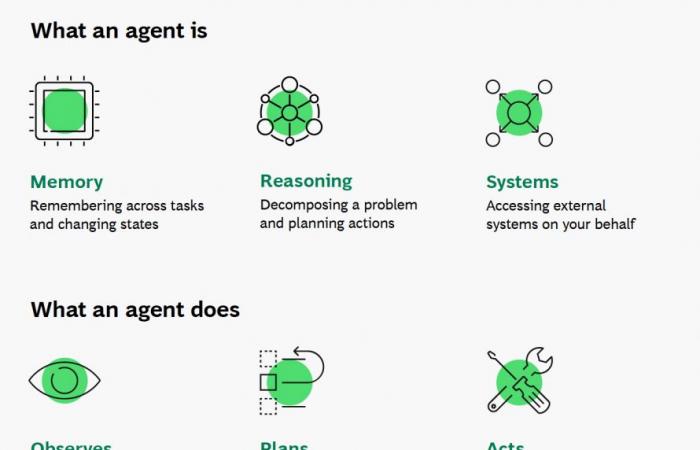Ahead of the Davos Forum, the Boston Consulting Group (BCG) recently published the second edition of its AI Radar. According to this report entitled “From Potential to Profit: Closing the AI Impact Gap”, for which more than 1,800 managers including 170 in France, were interviewed, AI, like last year, is one of the three main priorities strategic for 2025.
A growing investment, but still limited value
One in three companies plan to allocate more than $25 million to AI in 2025, with a projected 60% increase in investments in GenAI by 2027.
Although 75% of executives consider AI one of their top three strategic priorities, only 25% believe they see significant value from it. Why this disconnect between ambition and concrete results? The report highlights multiple reasons: lack of clarity in objectives, difficulties in measuring impact, and a focus on small-scale productivity initiatives.
Leading companies are distinguished by a different approach. They allocate more than 80% of their AI investments to core function redesign and innovation while other organizations devote 56% of their investments to productivity-focused initiatives. Leaders focus their efforts on a limited number of use cases, favoring on average 3.5 use cases compared to 6.1 for other companies, thus generating a return on investment 2.1 times higher.
Selon Christoph Schweizer, PDG du BCG:
“Leaders are those who focus their efforts on a few initiatives, who transform their processes, improve the skills of their teams and systematically measure the operational and financial returns of these initiatives.”
-The rise of autonomous agents
Autonomous agents, capable of operating with minimal human intervention, are seen as a key lever for the AI transformation of businesses.
Impact on employment: threat or opportunity?
Contrary to widely held fears, only 7% of executives expect workforce reductions due to AI automation. The majority (68%) plan to maintain their workforce while focusing on training and upskilling. However, the gap between AI skills needs and current capabilities is still significant, with less than a third of companies having trained at least 25% of their employees.
Cybersecurity and regulation: persistent challenges
Executives identify cybersecurity as a major issue, with 76% deeming their current measures insufficient. Data confidentiality and security (66%), lack of control over AI decisions (48%) and regulatory constraints (44%) also constitute obstacles to calm and effective adoption of AI.
BCG recommendations
The report highlights several best practices to maximize the impact of AI. Among them, the “10/20/70 rule”, which consists of devoting 10% of efforts to algorithms, 20% to data and technologies, and 70% to the transformation of processes and organizational culture. A disciplined and targeted approach therefore seems to be the key to creating sustainable value.







